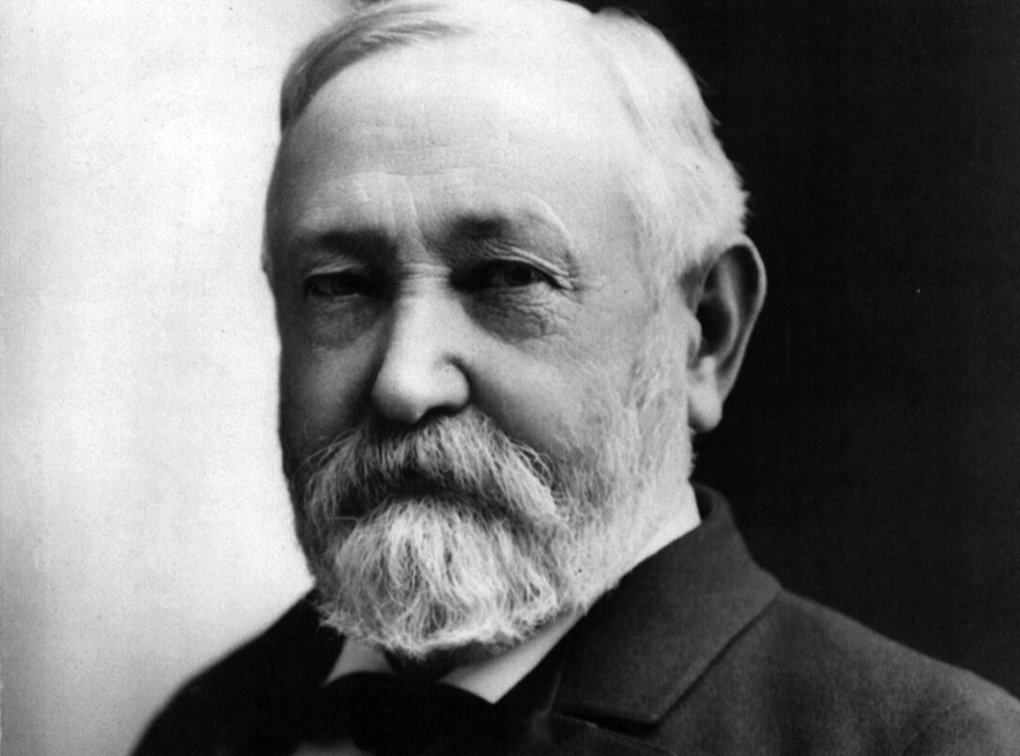Civilization
Abraham Lincoln and the Long Arc of History
Abraham Lincoln stood on the Constitution, but also made real the most profound change American society needed to make.

CHICAGO — Today is the birthday of Benjamin Harrison, the 23rd U.S. president and the only president ever elected from the state of Indiana, which is not far from where I’m writing this morning. Harrison was the grandson of the 9th president, William Henry Harrison, and a great-grandson of one of the signers of the Declaration of Independence. Born in Ohio, he moved to Indianapolis in 1854 where he practiced law and entered politics.
General Harrison – and President Abraham Lincoln
An ardent abolitionist, Harrison was an early and enthusiastic supporter of the Republican Party. When the Civil War broke out, he volunteered for military service and was commissioned as a lieutenant. His natural leadership ability was evident immediately, and by the end of the war he’d risen to the rank of brigadier general. In that capacity, he led troops in the decisive Atlanta campaign, riding through the South with William Tecumseh Sherman on the Union Army’s famed “March to the Sea.”
Two years before that march, on this date in 1862, Horace Greeley published an open letter to Abraham Lincoln called “The Prayer of Twenty Millions” urging him to free the slaves in the Confederacy and the border states that had not seceded from the Union.
“The Union cause,” wrote Greeley, “has suffered from a mistaken deference to Rebel slavery.”
Lincoln’s astonishing reply we’ll discuss in moment.
Horace Greeley’s “open letter” to Abraham Lincoln, dated August 19, 1862, and published the following morning, was really an editorial in his newspaper. Greeley’s New York Tribune was at the time the most influential Republican paper in the country.
How Lincoln answered Horace Greeley
Greeley had been an early Lincoln supporter. He launched the Tribune in 1841 to advance his many causes, which included abolition, temperance, opposition to capital punishment, and westward expansion, the issue he is perhaps best remembered for today. Although he had corresponded privately with Lincoln in the past, Greeley cannot have expected Lincoln to answer his long “letter,” especially considering its condescending and tendentious tone.
But Lincoln maintained his ability to surprise. On August 22, 1862, the president penned his reply. It, too, was an editorial and it was as concise as Greeley’s had been verbose, judicious where Greeley had been intemperate, calculating and astute where Greeley had been emotional.
The president opened his 394-word reply by saying that he would not respond to the erroneous assertions in Greeley’s editorial, thereby signaling without getting into a debate that much of it was wrong. Lincoln also acknowledged that Greeley’s tenor had been insulting “and dictatorial,” a transgression the president said he would “waive” in deference to an old friend “whose heart I have always supposed to be right.”
Then Lincoln got to the heart of his argument: that although he personally abhorred slavery, the Constitution didn’t allow him to eradicate it with the stroke of a pen. In an oft-quoted passage used to impugn Lincoln a century later by college professors with advanced degrees but little common sense, he continued:
I would save the Union. I would save it the shortest way under the Constitution. The sooner the national authority can be restored; the nearer the Union will be “the Union as it was.” If there be those who would not save the Union, unless they could at the same time save slavery, I do not agree with them. If there be those who would not save the Union unless they could at the same time destroy slavery, I do not agree with them. My paramount object in this struggle is to save the Union, and is not either to save or to destroy slavery. If I could save the Union without freeing any slave I would do it, and if I could save it by freeing all the slaves I would do it; and if I could save it by freeing some and leaving others alone I would also do that.
Not a throwaway line
Lincoln added: “I have here stated my purpose according to my view of official duty; and I intend no modification of my oft-expressed personal wish that all men everywhere could be free.”
This last sentiment was more than a throwaway line. Although only a handful of people knew it, Lincoln had already drafted the Emancipation Proclamation and was awaiting a Union victory on the battlefield before announcing it. Although that victory would come at Antietam a month later, Lincoln hadn’t known when such a day would arrive. In the meantime, he wanted to reassure his supporters without driving the border states into the Confederacy.
And so in that 394-word letter he sent a signal that his supporters would have understood. For starters, as University of Albany legal scholar Paul Finkelman has noted, by August of 1862 waves of slaves had gained their freedom by presenting themselves at the gates of U.S. Army forts and encampments. So Lincoln’s assertion that he was willing to preserve the Union “without freeing any slave” was a rhetorical device.
“The letter was, in effect, a presidential address hidden within a response to an attack, an address that the president could not have made directly, for political reasons,” Finkelman wrote. “Lincoln made clear that emancipation would be his policy.”
Making change real
Although both sides had reasons for denying it once blood started being shed, there was never any doubt about the root cause of the Civil War. But with an impolitic prodding from an old friend, Lincoln skillfully shifted the terms of that debate in a way strategically favorable to his side.
The whole country was now on notice that the president was saying slavery might have to be destroyed to “save the Union.” This was a tactical position, not a moral argument. Nonetheless, it placed the Lincoln administration, the federal government, and the blue-clad Northern fighting men on the same sort of secure high ground seized by Union troops at Gettysburg.
And today, 162 years later, the Democratic Party – the direct descendant of the political entity in direct opposition to Lincoln, and everything he stood for – is assembled in Chicago to anoint as its presidential standard-bearer a woman of color. Demonstrators in the streets, here as always, may want faster change. But in the long arc of history, the change Americans have already wrought is breathtakingly profound.
This article was originally published by RealClearPolitics and made available via RealClearWire.
Carl M. Cannon is the Washington Bureau Chief of RealClearPolitics and Executive Editor of RealClear Media Group. Carl is a past recipient of the Gerald R. Ford Journalism Prize for Distinguished Reporting and the Aldo Beckman Award, the two most prestigious awards for White House coverage. Previous positions include executive editor of PoliticsDaily.com, D.C. bureau chief for Reader's Digest and White House correspondent for both the Baltimore Sun and National Journal. He was a 2007 fellow-in-residence at Harvard University's Institute of Politics, a past president of the White House Correspondents’ Association, and is a published author.
-

 Accountability2 days ago
Accountability2 days agoWaste of the Day: Principal Bought Lobster with School Funds
-

 Constitution2 days ago
Constitution2 days agoTrump, Canada, and the Constitutional Problem Beneath the Bridge
-

 Executive17 hours ago
Executive17 hours agoHow Relaxed COVID-Era Rules Fueled Minnesota’s Biggest Scam
-

 Civilization16 hours ago
Civilization16 hours agoThe End of Purple States and Competitive Districts
-

 Civilization4 days ago
Civilization4 days agoThe devil is in the details
-

 Executive4 days ago
Executive4 days agoTwo New Books Bash Covid Failures
-

 Civilization3 days ago
Civilization3 days agoThe Conundrum of President Donald J. Trump
-

 Executive4 days ago
Executive4 days agoThe Israeli Lesson Democrats Ignore at Their Peril




